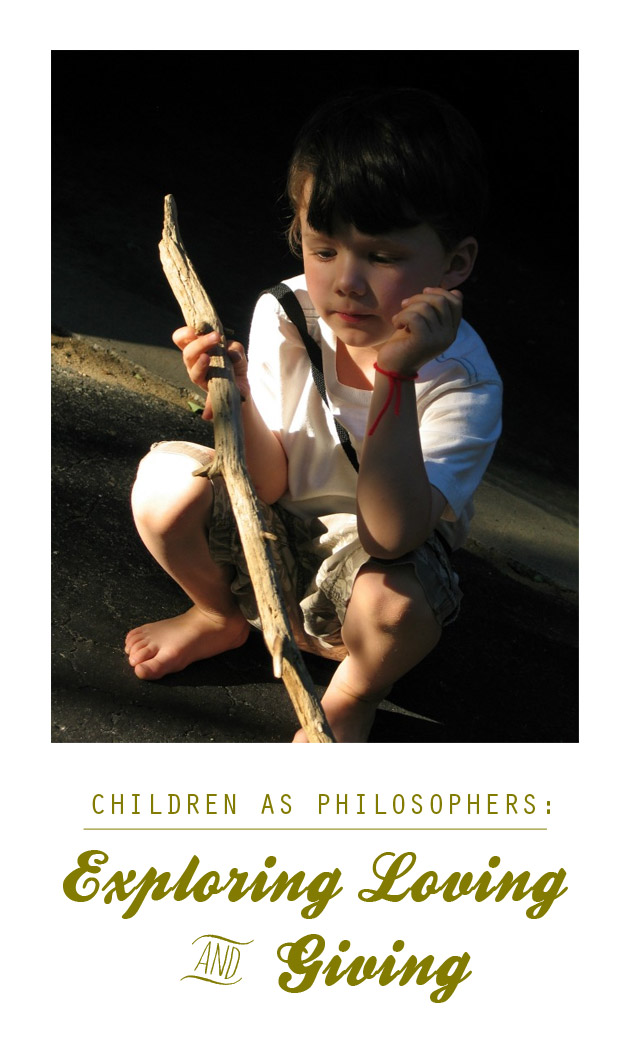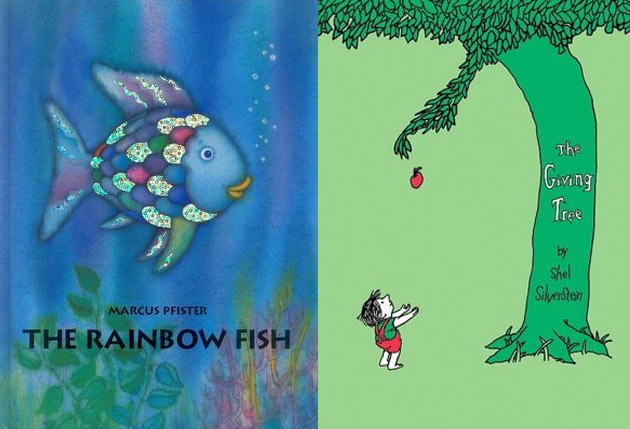Children as Philosophers: Exploring Loving and Giving
 Monique of Green Acorns is with us today to share some thoughtful tips on helping our children to ponder life’s big questions.
Monique of Green Acorns is with us today to share some thoughtful tips on helping our children to ponder life’s big questions.
As we approach this holiday season, many of us may be having conversations about what it means to give and why it’s important. We will be seated with family and friends discussing what we are thankful for. We will be sharing ourselves and what we have to offer with those we love.
Giving, love, thankfulness: These are significant topics that we should all explore, especially with our children. They are also topics that are deep and involved, yet children possess the skills that enable them to think about the issues. Children naturally wonder about the world around them, are great at asking questions and therefore, are natural philosophers. Have you ever been stumped by a question from a child like “does the universe go on forever and is that really possible” or “is it wrong to steal food if you are starving”?
Life’s big questions are complex and may not have clear right or wrong answers. Whether or not they do, isn’t it more meaningful to let children come to their own conclusions? It’s okay that we don’t have all the answers. It’s okay, and even helpful, to ask your child more questions in return. In fact, helping your child explore the issues for themselves demonstrates that we value their questions, their opinions, and what they have to offer.

Two books that many children know that touch upon the topics mentioned above are The Giving Tree by Shel Silverstein and The Rainbow Fish by Marcus Pfister. I enjoy reading these books with children for the purpose of opening a dialogue about the nature of giving, sharing, friendship, and love. For example, should the rainbow fish give away something that is so central to who he is just to gain friends? Are those fish seeking his special scales truly his friends? What does it mean to be a friend to another?
This fairly short video is a good introduction to why practicing philosophy with children is beneficial. The Teaching Children Philosophy website provides a list of books, the philosophical issues raised by each book, and guides for initiating philosophical discussions with children about those issues. Don’t be hesitant to pick one up and give it a go with your elementary school age child. Remain open and be okay with not providing answers. I’m sure the conversation will be enlightening for both you and your children!
